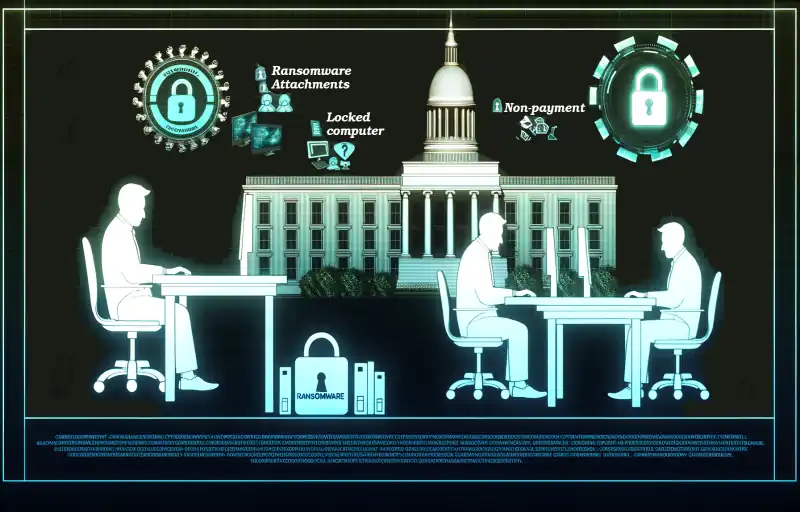
“Ransomware Strikes Again: Local Governments Grapple with Cyber Chaos and Sensitive Data Exposure”
Analyzing the Impact of Ransomware on Local Governments: Lessons from Killeen, Texas and National Cybersecurity Responses
This week, several local governments found themselves grappling with the disruptive effects of ransomware attacks, highlighting a growing national cybersecurity crisis. Among the affected, the city of Killeen, Texas, reported a significant cyberattack that commenced on Wednesday morning, disrupting its internal system servers and consequently slowing down essential services. This incident underscores the broader debate among senior U.S. government cyberleaders on effective strategies to combat such cyberthreats.
In Killeen, a city with a population nearing 160,000, the impact of the ransomware attack was immediately felt by its residents. City officials were compelled to issue warnings about potential delays in essential services, particularly within the Utility Collections division. The cyberattack forced the city to revert to more traditional methods of payment for utilities; residents now have to either pay online or use cash or checks in person. Additionally, new residents are facing hurdles as they must call in to register for utility services, adding a layer of inconvenience that underscores the severity of the attack.
Despite these challenges, there has been some progress in reducing the effects of the attack. The city has successfully restored services at the municipal court and transfer station, both of which were initially compromised. This partial recovery is a testament to the resilience and swift action of the city’s response teams who are working diligently to bring all systems back online.
The perpetrators behind this disruption are identified as the BlackSuit ransomware gang, a group recently spotlighted by the FBI among other agencies. This gang is not new to the scene; it is a rebranded version of another notorious group that previously orchestrated a shutdown in Dallas last year. The recurrence of such attacks by the same actors highlights a critical vulnerability in local government cybersecurity defenses and emphasizes the need for a coordinated response at both local and national levels.
The ongoing situation in Killeen serves as a real-time case study for cybersecurity professionals and government officials who are currently debating how best to address and reduce the impact of ransomware attacks. These discussions are crucial as they not only pertain to immediate recovery efforts but also involve long-term strategies to safeguard sensitive citizen information and ensure continuity of essential services.
This incident sheds light on the broader implications of ransomware attacks on public trust and safety. When essential services like utility collections are hindered, it does not only cause inconvenience but also erodes citizens’ trust in their government’s ability to protect their data and provide necessary services. Thus, enhancing cybersecurity measures is not just about protecting data but is also crucial in maintaining public confidence in governmental institutions.
As senior U.S. government cyberleaders continue to deliberate on effective strategies to combat these cyber threats, it is clear that collaborative efforts between various governmental levels and private sectors are essential. Learning from incidents like the one in Killeen can help formulate more robust cybersecurity policies and response strategies that can better protect communities across the nation from similar threats in the future.
Killeen is on its path to recovery, the lessons drawn from this incident are invaluable for framing future responses to cybersecurity threats faced by local governments nationwide. As this discussion evolves, it remains imperative for all stakeholders involved to prioritize and innovate in their approach towards a more secure and resilient digital infrastructure for public governance.














